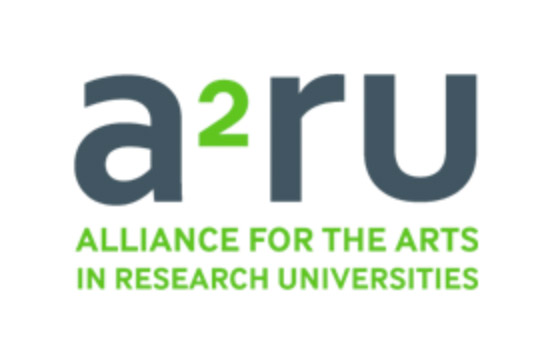RIT joins national arts research consortium a2ru
Exclusive alliance advances arts-integrative research, curricula, programs and creative practice
Rochester Institute of Technology has joined the Alliance for the Arts in Research Universities, known as a2ru, an exclusive consortium of research universities committed to advancing interdisciplinary, arts-integrative research and education.
The organization involves the collaborative efforts of 40 colleges and universities working to identify and share best practices in integrating the arts into research and curricula in higher education. New RIT President David Munson originally helped spearhead the establishment of the national organization while serving as dean of the University of Michigan’s College of Engineering.
After a number of successful initiatives designed to create new interdisciplinary connections between the arts and other disciplines, Munson and his Michigan colleagues formed a2ru in 2012. Soon thereafter, a2ru received a grant from the Andrew W. Mellon Foundation to study and catalog best practices in arts integration at universities nationwide.
“The goal of a2ru is to more effectively infuse the arts throughout research universities, and I’m proud that RIT has become one of its newest members,” Munson said. “Arts should be fully integrated throughout the campus—both in terms of educational programs and research initiatives—and I’ll be thrilled to see the impact of a2ru across our university.”
In announcing the decision to join the organization, Jeremy Haefner, RIT provost and senior vice president for academic affairs, said a2ru’s focus on identifying best practices in interdisciplinary, arts-related research as well as opportunities to further enhance teaching and learning across a wide range of programs “fits well with the priorities of our strategic plan.”
Haefner has appointed Susan Lakin, professor in the advertising photography program in the College of Imaging Arts and Sciences, to serve as RIT’s point of contact for the university’s initial year as an a2ru partner.
“Susan’s experience in interactive, interdisciplinary projects involving both the arts and technology make her uniquely suited for this role,” Haefner said. “In this position, Susan will serve as an intermediary, sharing a2ru news, events and activities with interested faculty.”
Lakin believes that RIT’s membership in the organization “offers an opportunity to unite faculty and students across campus through our participation with a2ru.”
“It offers both a great resource for RIT and increased visibility of various works across campus,” Lakin said. “Through a2ru, RIT will have access to arts-integrative research, examples of interdisciplinary curriculum and successful interdisciplinary program structures in addition to the opportunity to contribute pertinent material.”
Lakin added that in addition to a2ru providing opportunities for networking and help in reducing barriers to interdisciplinary research, the organization provides important information on grant opportunities and relevant external organizations.
The a2ru organization challenges institutional barriers to interdisciplinary research, curricula and creative practice by:
- Conducting research on arts integration to inform public conversation and influence relevant policy.
- Supporting academic leadership at partner institutions through consultation on the structural and organizational dynamics required to launch and/or sustain innovative, interdisciplinary efforts.
- Building more effective mechanisms to assess arts-integrative interdisciplinary research and curricular impacts.
RIT community members interested in receiving updates about a2ru or more information regarding the organization’s mission, other partners and additional resources can go to the Alliance for the Arts in Research Universities website or contact Lakin at srlpph@rit.edu or 585-475-2742.














